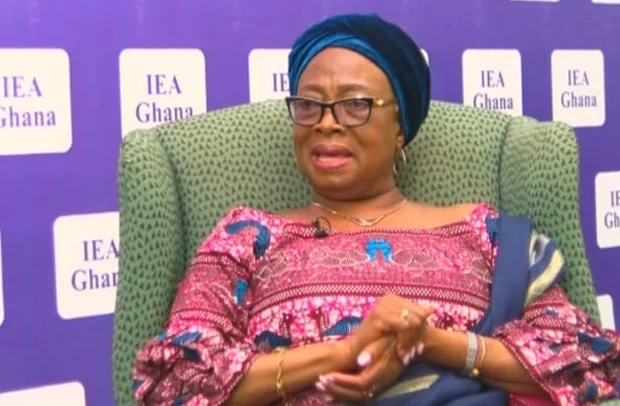Sophia Akuffo
FORMER CHIEF Justice and Distinguished Fellow of the Institute of Economic Affairs (IEA) Ghana, Sophia Akuffo, has called on the government to provide three solid reasons why it is seeking to extend the petroleum licences of Tullow Oil and its partners beyond the original expiration date of 2036.
According to the former Chief Justice, the decision to extend the licence is mind-boggling considering the long-running tax and arbitration disputes between Ghana and Tullow, of which the contentious issue is the USD 320 million Branch Profit Remittance Tax assessed by the Ghana Revenue Authority (GRA), which Tullow successfully challenged at the International Chamber of Commerce (ICC) in London.
The tribunal, she stated, not only ruled in Tullow’s favour but also ordered Ghana to cover legal and administrative costs, with accrued interest.
The London-based ICC held that Tullow was not liable to pay the USD 320 million tax liability, and further directed Ghana to pay substantial legal and arbitration-related costs, including GBP 1,946,589.44, USD 294,228.72, and USD 574,000.00 in tribunal and ICC fees, with interest accruing at 5% per annum until payment is made in full.
“We, the people of Ghana, deserve to know why a contract with 11 years remaining should be extended further. Moreover, the business partner in question hasn’t exactly had a stellar track record. We’ve been in arbitration with them over tax payments, and despite the Ghana Revenue Authority’s assessment, they have challenged it, citing various reasons. As a result, Ghana lost millions of dollars in revenue. To make matters worse, we’re now facing damages of over a million pounds per day, plus legal costs amounting to hundreds of thousands of dollars. And then in the middle of all that, you extend an agreement,” she said.
She made this assertion at the IEA dialogue themed, “Reviewing the Petroleum Agreement for the Good of Ghana”.
Barrister and Solicitor Victor Anku-Tsede, in his presentation, added that the recent Memorandum of Understanding (MoU) signed between the Government of Ghana and Tullow Oil, seeking to extend existing licences through to 2040, described as non-binding, can lock Ghana into legacy terms that no longer serve the public interest.
He indicated that Ghana’s constitution and laws, particularly Articles 181(5) and 268(1), require parliamentary approval for such significant resource transactions. “The Supreme Court’s jurisprudence confirms that substance must prevail over form in determining whether agreements qualify for ratification.
“Reforming these agreements is not a radical proposition. It is a practical, globally consistent approach to maximising public benefit. Other nations like Senegal, Namibia, Tanzania, Angola, and Mexico, have all undertaken petroleum contract reform in response to evolving national goals. These examples offer Ghana useful lessons in balancing investor certainty with fiscal justice and democratic accountability,” he added.
Deputy Ranking Member of Parliament’s Energy Committee and Member of Parliament for Afigya Kwabre North, Collins Adomako-Mensah, assured that the new agreement will come to Parliament for scrutiny. He noted that current discussions are preliminary, and that the MoU will not become law without parliamentary approval.
BY Prince Fiifi Yorke


